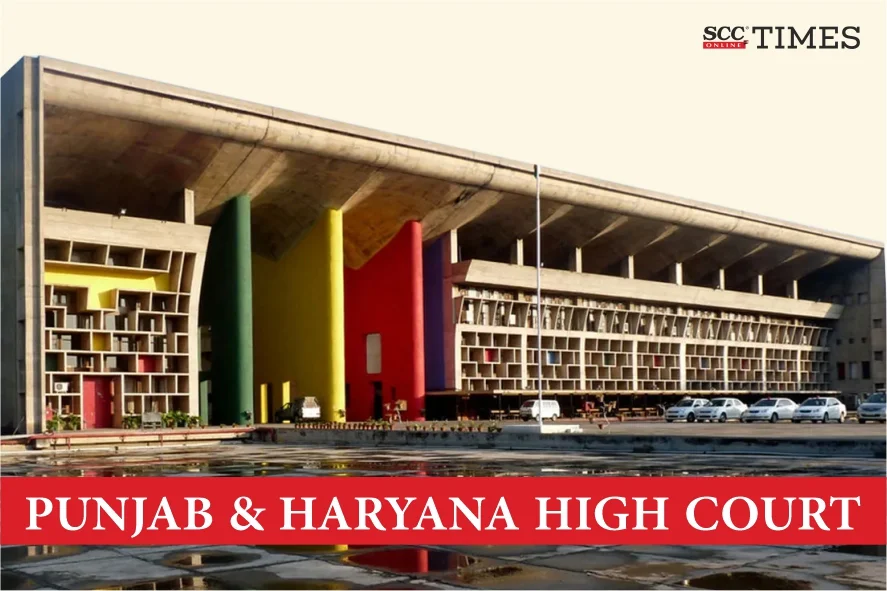Punjab and Haryana High Court: In a writ petition filed by a medical aspirant seeking allotment of a seat to him in the Bachelor of Ayurvedic Medicine and Surgery (‘BAMS’) course at Guru Ravidas Ayurved University (‘the College’), the Division Bench of Sheel Nagu, CJ., and Sumeet Goel*, J., dismissed the writ petition, holding that the medical aspirant’s claim for relaxation of the eligibility criteria on the ground of equity was beyond the purview of the legal framework as he was not qualified. The Court further held that law did not support preferential treatment or relaxation in favour of an individual, particularly when such relaxation neither has any statutory sanction nor any reasonable nexus with the objective behind the eligibility criteria.
Background
The petitioner-medical aspirant passed his 10+2 examination (non-medical) from the Punjab School Education Board in the subjects, inter alia, English, Physics, Maths, and Chemistry in 2023. Thereafter, he passed an additional subject, Biology, from the Himachal Pradesh Board of School Education in 2024. The medical aspirant, as per his pleaded case, became eligible to apply for the National Eligibility cum Entrance Exam (‘NEET’) 2024 since he had passed Biology as an additional subject in 12th Class. Accordingly, he appeared in the NEET 2024 and obtained 96 out of 720 marks.
Subsequently, he applied to the College seeking admission to the BAMS course and was issued a provisional allotment letter. The admission to the said course was governed by a Government Notification (‘the notification’) which stated that the candidate must have passed intermediate 10+2 exam or its equivalent examination with the subjects Physics, Chemistry, Biology and English individually and must have obtained minimum of fifty percent marks taken together in Physics, Chemistry and Biology.
Thereafter, the College did not allot a seat to the medical aspirant, which constrained him to file the present writ petition.
Issue
Whether the medical aspirant possessed the requisite qualifications, in terms of the notification, to be admitted to the BAMS course, and if so, whether he is entitled to be admitted.
Analysis and Decision
The Court placed reliance on Ashok Kumar Sonkar v. Union of India (2007) 4 SCC 54, wherein it was stated that possession of requisite educational qualification is mandatory. The same should not be uncertain. If any uncertainty is allowed to prevail, the employer would be flooded with applications from ineligible candidates. The Court stated that indubitably, the above-stated enunciation of law had a factual backdrop pertaining to a recruitment process, but the ratio decidendi thereof would apply mutatis mutandis to an admission process as well.
Considering the facts of the case, the Court stated that the irresistible conclusion was that the medical aspirant was not qualified to apply for the course since he did not pass the qualifying examination from a single board/university. The Court added that the words of the notification were clear, plain, and unambiguous. They were susceptible to only one meaning, thus, a Court of law was bound to give effect to that meaning, irrespective of the consequences flowing therefrom. The Court stated that the law did not support preferential treatment or relaxation in favour of an individual, particularly when such relaxation neither has any statutory sanction nor any reasonable nexus with the objective behind the eligibility criteria.
The Court remarked that it was an immutable and sacrosanct obligation of a Writ Court to dispense justice in accordance with the principles of good conscience, justice, and equity. However, the invocation of equitable jurisdiction does not confer upon the Court an unfettered prerogative to render orders in complete defiance or in oblivion of the established tenets of the law of the land. The administration of equity must operate within the defined contours of jurisprudence and cannot transgress into the realm of judicial adventurism, whereby reliefs, alien to the fundamental precepts of the law, are granted without legal substratum.
The Court further remarked that equity, in its true essence, does not entail bestowing that which the law does not contemplate, nor does it envisage the conferment of benefits that stand in stark contradiction to statutory mandates. The Writ Court, whilst exercising its plenary powers in equity, is vested with the authority to bridge the lacunae that may exist within the rigid framework of statutory provisions. However, such a course of action must be undertaken with due reverence to the overarching legal order, lest it results in judicial encroachment that supplants it; or it tampers the rigours of legal formalism without removing the statutory fabric upon which the administration of justice firmly rests. The equitable jurisdiction of a Writ Court must be exercised with judicious restraint, ensuring that its decisions do not traverse beyond the permissible precincts of legal propriety.
The Court added that the maxim aegquitas sequitur legem — equity follows the law — encapsulates the fundamental doctrine, namely, that an equitable relief must be harmonized with statutory provisions, not granted in derogation thereof.
Stating the aforesaid, the Court held that the medical aspirant’s claim for relaxation of the eligibility criteria on the ground of equity was beyond the purview of the legal framework. Accordingly, the petition was dismissed.
[Gurpreet Singh v. Guru Ravidas Ayurved University, CWP No. 33365 of 2024 (O&M), decided on 20-03-2025]
*Order authored by Justice Sumeet Goel
Advocates who appeared in this case :
For the petitioner: Kanwarpal Singh Mahey
For the respondents: Shreya Bublani, Sidhi Bansal, R. Kartikeya, and Paramjit Singh Saini






